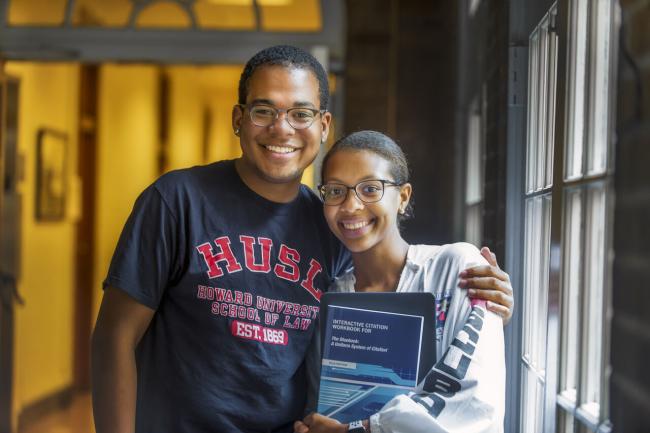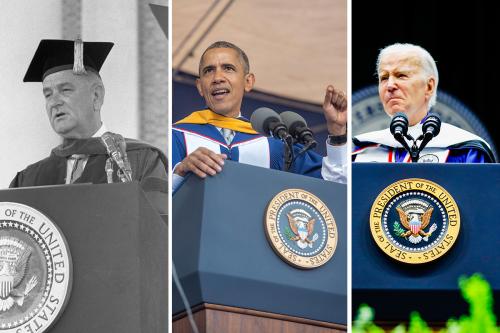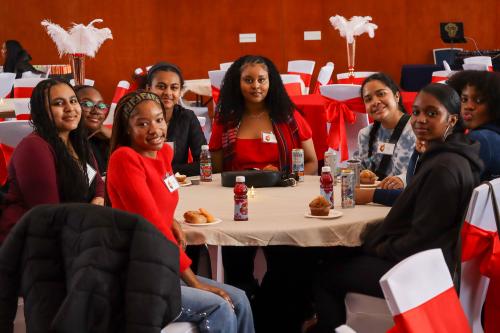Washington – Howard University School of Law is participating in the national expansion of the Justice John Paul Stevens Public Interest Fellowship Program in collaboration with the John Paul Stevens Fellowship Foundation and several law schools. This expansion honors United States Supreme Court Justice John Paul Stevens’ lifelong dedication to improving the justice system by investing in the next generation of public interest and social justice lawyers.
“Howard University School of Law is excited to be a part of the John Paul Stevens Public Interest Fellowship Program expansion,” said Howard University School of Law Dean Danielle Holley-Walker. “Howard law students will make great additions as fellows to the program, helping them to better prepare themselves for public interest careers in the legal profession.”
This expansion will support 13 Stevens Fellows at six participating law schools: Florida A&M University College of Law, Howard University School of Law, Northern Carolina Central University School of Law, Southern University Law Center, Texas Southern University Thurgood Marshall School of Law and University of the District of Columbia David A. Clarke School of Law. These fellows will join a national cohort of at least 75 Stevens Fellows in 2021, the largest group since the fellowship program’s inception in 1997. The chosen students will be selected and announced in the Spring and will undertake their public interest placements at nonprofits and government agencies during the summer of 2021.
The Stevens Fellowship Program was created in 1997 in honor of Justice Stevens, reflecting his deep belief that a dynamic and effective justice system depends on a cadre of talented lawyers committed to the public interest. The fellowship program will provide grants to enable law students attending a network of participating law schools to work in unpaid public interest summer law positions.
In 2010, in celebration of Justice Stevens’ retirement from the Supreme Court, a group of his former law clerks established the foundation to provide a formal home for the Stevens Fellowship Program. Over time, the Stevens Fellowship Program has increased the network of participating law schools to 29 and has funded 550 Stevens Fellows who have worked at more than 300 public interest nonprofits or governmental agencies. Nearly 74 percent of former Stevens Fellows are now working in public interest legal positions.
President Gerald Ford named Justice Stevens to the U.S. Supreme Court in 1975. First seen as a moderate on many issues, Justice Stevens emerged as a consistently independent thinker over the decades of his tenure on the court. He retired from the Supreme Court on June 29, 2010. At the time of his retirement, he was the oldest member of the court and the third longest-serving justice in the history of the Supreme Court. Justice Stevens remained actively involved in the mission and work of the John Paul Stevens Fellowship Foundation until his death in July 2019.
The Stevens Fellowship Program at Howard University School of Law was launched in 2011 at the direction of Justice Stevens. The new expansion will bring the Stevens Fellowship Program to five additional law schools at historically Black colleges and universities. These law schools are among the nation’s most diverse in terms of faculty and students and are well-known for their commitment to the public interest and preparing a diverse group of law students for leadership.
###
About Howard University
Founded in 1867, Howard University is a private, research university that is comprised of 13 schools and colleges. Students pursue more than 140 programs of study leading to undergraduate, graduate and professional degrees. The University operates with a commitment to Excellence in Truth and Service and has produced one Schwarzman Scholar, three Marshall Scholars, four Rhodes Scholars, 11 Truman Scholars, 25 Pickering Fellows and more than 165 Fulbright recipients. Howard also produces more on-campus African-American Ph.D. recipients than any other university in the United States. For more information on Howard University, visit www.howard.edu.
Media Contact: Misha Cornelius, misha.cornelius@howard.edu





